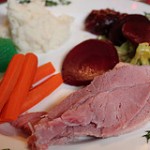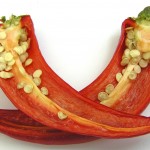Up for an Oscar this year is Colin Firth for his role as England’s King George VI in the World War II film, “The King’s Speech.” The drama, which focuses on King George’s battle with a stuttering speech disorder, has brought attention this commonly misunderstood stammering syndrome which affects 1% of all adults.
Stuttering is not indicative of mental illness.
The New England Journal of Medicine published this report regarding stuttering: Stuttering is a genetic speech disorder which impairs one’s ability to speak fluently; sufferers often repeat syllables, words and sounds in a single sentence, making it difficult to communicate clearly. Sadly, most compulsive stutterers are unable to control their condition and are often conceived by others as being mentally slow, ineloquent and sometimes brain damaged; in actuality their symptoms are neurologically based and not a reflection of intelligence or mental clarity.
One percent of all adults stutter.
Stuttering is a genetic disorder which most, but not all stuttering children eventually outgrow. Many adults learn to stop stuttering by using speech therapy activities for stutterers such as stress reduction and breathing exercises; electronic stop stuttering devices are also employed.
Scientists search for clues to explain the causes of stuttering.
Researchers have linked stuttering to chromosome 12, noting mutations to a gene known as GNPTAB. Scientists studied 123 Pakistani subjects who suffer from stuttering speech disorder, 46 of whom were of blood relation. Also included in this research were over 500 US and British participants, half of which stuttered compulsively.
The mutated gene which was detected in the Pakistani stutterers was also found in the stutterers from the US and the UK.
Of the US and English control groups, only the stutterers contained the GNPTAB gene which has been proven to contribute to stuttering, as well as various metabolic disorders such as cardiovascular disease and illnesses of the skeletal system, liver, and brain development. Scientists hope to use these findings to develop a cure for stuttering.
Vitamin deficiency can also lead to stuttering.
Stuttering is also one of many symptoms of vitamin B12 deficiency. Vitamin B12 is necessary for production of red blood cells and the production of neurotransmitters of the brain. A deficiency may lead to pernicious anemia, chronic fatigue and irreversible neurological damage.
Treatment for stuttering disorder includes:
- Stress management
- Meditation
- Vitamin B12 therapy
- Enzyme replacement therapy
Sources:









